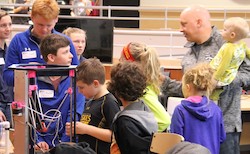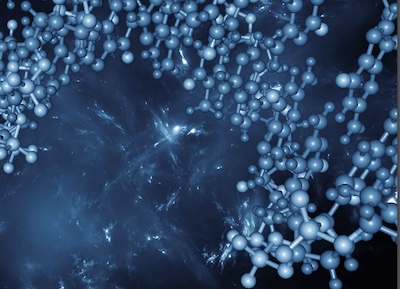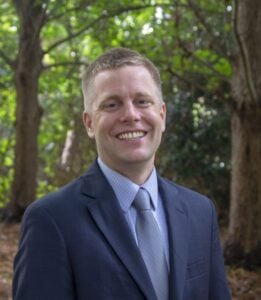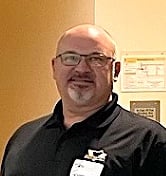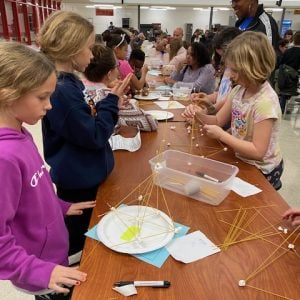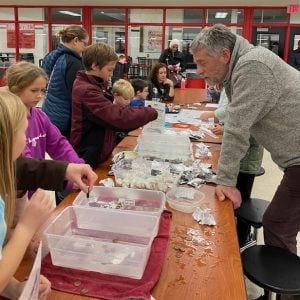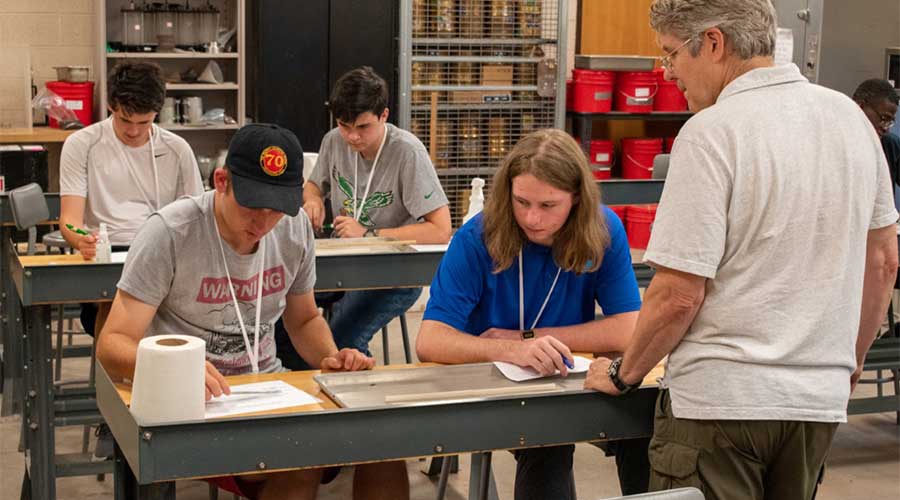The STEM Fair and Festival was held on Thursday, March 16, 2023, at the Memorial Union Ballroom on Michigan Technological University campus in Houghton, Michigan. More than 50 students presented their projects highlighting the results of weeks of work on a science or engineering investigations.
Students from Houghton, Baraga, Keweenaw, Ontonagon, and Gogebic Counties in grades 4–8 were invited to participate in the STEM Project Fair. Students prepared and presented on a science investigation or an engineering design project.
The 2023 participants and winners are posted on the MiSTEM Network.
Tom Oliver, director of Michigan Tech’s Center for Science and Environmental Outreach, coordinated the fair. For the first year after the pandemic, he’s thrilled with the number of kids and parents who came in and checked things out.
“You can see kids everywhere are having fun, which is entirely what we want to do,” he said. “We want them to have fun doing science, technology, engineering and mathematics, because those are things that lead them to what they want to do with their careers.”
Read more at the Daily Mining Gazette, by Garrett Neese.
Kinley Lyons is a 4th-year chemical engineering student at MTU now, but she participated in the STEM Fair years ago as a grade schooler. Lyons and her partner constructed a hovercraft as their project, using an old street sign, a tarp, and a leaf blower.
“It didn’t work that well, but it did work,” she said with a laugh. “It is one of the things that got me into engineering, and here I am now.”
